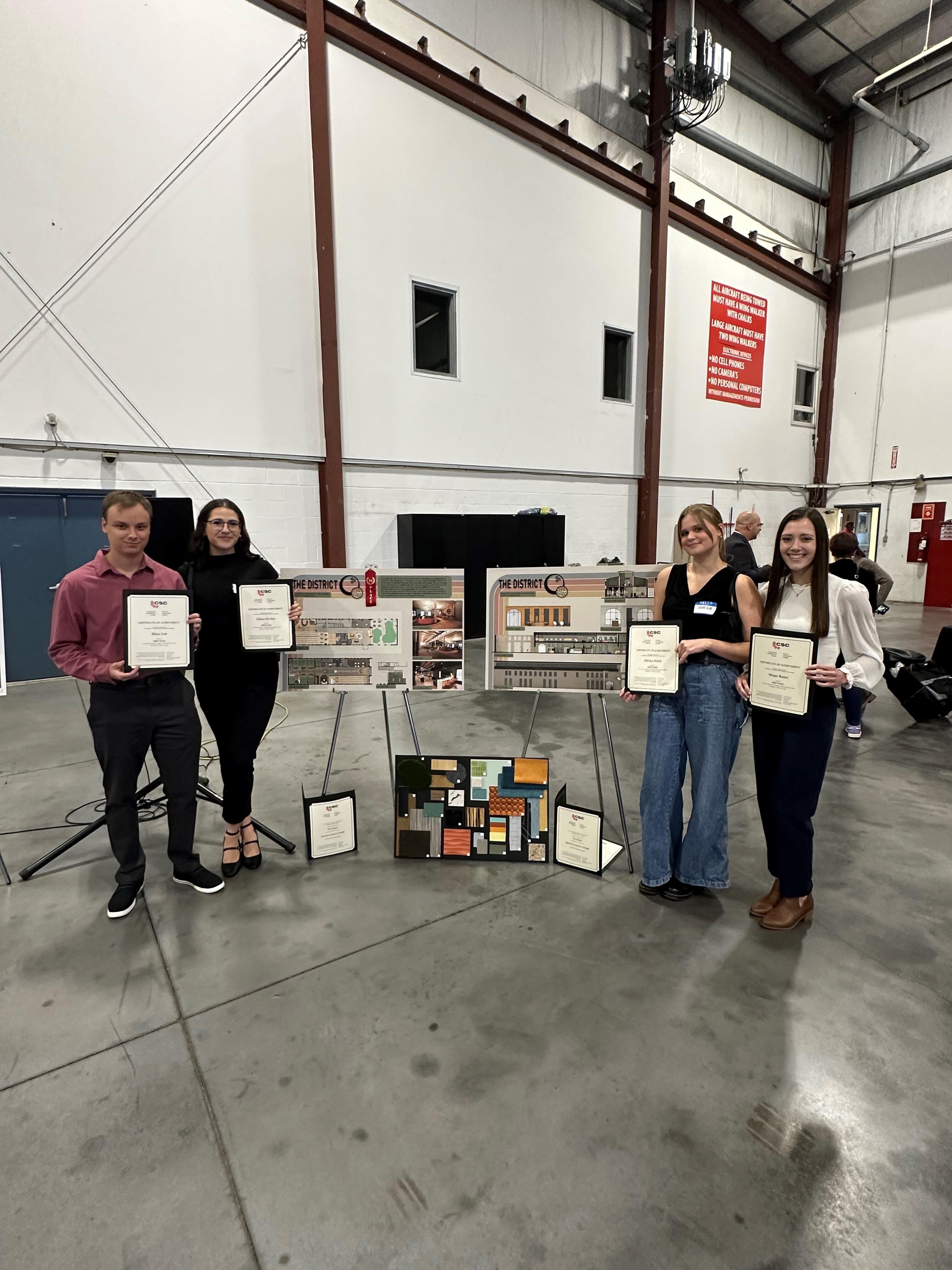Conestoga Bachelor of Interior Design students took all the top prizes at a regional design competition.

Interior Design students Megan Baxter, Juliana Escobar, Ethan Lett and Sabrina Schuit won first place and people’s choice awards. The students were tasked with reimagining an 1859 building in Cambridge’s historic Gaslight District.
Three Conestoga teams won first, second and third place as well as people’s choice at Construction Specifications Canada's (CSC) Grand Valley Chapter’s 10th annual “Tapping the Future” Student Design Challenge.
The students were tasked with reimagining an 1859 building in Cambridge’s historic Gaslight District.
Entries from teams of up to four post-secondary Southern Ontario architecture and design students needed to fit the hospitality theme and incorporate certain elements.
The best rule: there were no budget constraints and students were encouraged to think big.
That’s just what the team that won both the first place and people’s choice awards did. They envisioned a bowling and golf simulator lounge with two levels: one for the general public and a VIP area. The space had a retro feel while keeping the original materials.
“It all came together really well,” said team member Ethan Lett. “It was just a very grand and complex space.”
The team, which also included Megan Baxter, Juliana Escobar and Sabrina Schuit, were especially pleased with their ambitious and unique vision for a fun entertainment venue, calling it their best project in the four-year bachelor’s degree program.
Second place went to Chloe Wilhelm, Erica Buehler, Gabby Lisac and Karina Popa for their boutique hotel called the Engine House. Third place was awarded to Lauren Maul, Katie Reimer and Sydney Lanaus for their Azzuro Spa & Wellness design.
“They did fantastic,” said Sarah Turner, interior design professor. “I am very proud of their hard work, and the uniqueness of each entry.”
The competition is integrated into the curriculum as the students learn about adaptive re-use of buildings that are historically significant or have been neglected. Their final projects are then submitted to the competition hosted by CSC. The awards were handed out at an event held September 14 at the Region of Waterloo International Airport.
Conestoga’s Bachelor of Interior Design program is a CIDA-accredited degree - an international designation from the Council for Interior Design Accreditation. Along with comprehensive classroom learning on technical foundations, creative design and scholarly research to understand how a space impacts the user for “informed design,” the students benefit from two co-op sessions to get real-world experience.
Graduates generally go on to join architectural or interior design firms, but those are just two of the career options available. “There’s a lot of opportunities for them,” Turner said.
Conestoga’s School of Engineering & Technology offers a comprehensive suite of programs with a wide range of credentials in areas that include architecture, civil, construction, mechanical and electronics. Programs feature project-based learning, co-op work experience and applied research opportunities to prepare graduates for success in their chosen fields.
